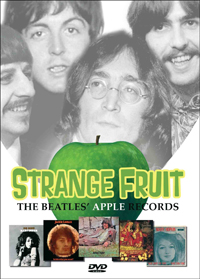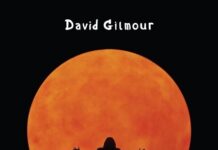There can be little argument that the Beatles were a music phenomenon with excellent songwriting, singing and execution. Where the argument can begin is with the band’s eclectic business venture: Apple Corps. Primarily set up as a tax shelter for all the money pouring in, Apple was envisioned by the Beatles as an iconoclastic, pioneering business model for the entertainment industry where the artists were in charge. In retrospect, it was revolutionary in many ways. But from 1968 through 1973, it was a chaotic, wild ride, somewhat mismanaged by its founders — something that played no small part in the Beatles’ demise.
Richard Dilello’s titillating book, The Longest Cocktail Party (now in production as a film starring Liam Gallagher), spilled the goods on the whole affair concerning the launching of the company and the subsequent break-up of the Fab Four. But the story of Apple Records is more than just about the Beatles. The 2010 Apple reissue campaign lit the way with long, out-of-print records from Mary Hopkin, Billy Preston, Doris Troy, Jackie Lomax, the Modern Jazz Quartet, John Tavener, The Radha Krsna Temple and James Taylor. Coming two years later, Strange Fruit: The Beatles’ Apple Records is an extensive documentary that covers the label’s birth and many of the aforementioned artists signed to Apple.
Former label press officer Tony Bramwell along with Beatles biographers Chris Ingham and Stefan Granados, and Mojo’s Mark Paytress, all pipe in with their expert perspectives. Jackie Lomax, living in California and still making music, may be the most colorful of the former Apple artists interviewed. David Peel and Stephen Friedland aka Brute Force (the latter’s segment is limited to the DVD’s Extras section) may be the most strange. Elephant Memory’s Gary Van Scyoc, Iveys bassist Ron Griffiths and his replacement when the Iveys turned into Badfinger, guitarist Joey Molland, also appear. In between the interviews, Thomas Arnold does a remarkable, authoritative job narrating.
Indeed, without Paul McCartney and Ringo Starr (and many other key players, now deceased) on board, it would be easy to diss this nearly three-hour film as a low-budget project with C-list talent. However, the story flows well with plenty of licensed footage and the commentary provided. Best of all, Apple artists like Lomax and Griffiths, long away from the spotlight, get a chance to tell their side of what went on.
With such a diverse roster, some of the label’s less prolific artists like Chris Hodge or the Sundown Playboys nary a mention. The focus falls on people like Mary Hopkin, the McCartney’s protégé who sang “Those Were The Days” and eventually retired from the music business — and apparently chose not to appear before the cameras filming Strange Fruit. We learn that Mary Hopkin sold a lot of records for Apple, further validating McCartney’s strengths as a producer and songwriter. He would later write “Come And Get It” for Badfinger after reading an interview with Griffiths, who complained about the label’s lack of support. The record would be the first of many singles, but Griffiths’ ouster gets glossed over in the glory.
Jackie Lomax, an old friend from Liverpool who now looks like a distant cousin of General Custer, seems to have gotten the shortest end of the stick. The musician was hired on by Apple as a staff songwriter, but George Harrison decided to put him in the studio with Eric Clapton, Nicky Hopkins, McCartney, Starr and others to make his debut album. While the record does indeed rock, especially the Harrison-penned “Sour Milk Sea,” it is described by the film’s scholars as mediocre, half-hearted and unexciting. Lomax seems no worse for wear as he fondly and honestly recalls his time as an Apple artist.
Along with the minor triumphs, we hear about the label’s problems, including their failure to keep James Taylor or sign bands like Yes and Crosby, Stills & Nash. Later, when Allen Klein started to clean house amidst the Beatles break-up, the label failed to properly promote Billy Preston and eventually lost Badfinger to Warner Brothers. And we learn that Yoko Ono was the most prolific and expensive artist on the label. During this time, we’re reminded that the real bread and butter of Apple remained the Beatles and their solo releases.
Surprisingly, Strange Fruit: The Beatles’ Apple Records makes no mention of the fact that Apple carried on after the Beatles break-up, resolving trademark disputes with a computer maker by the same name and issuing the Beatles Anthology and other posthumous DVDs and CDs. Still, the portrait leaves little unexplored, filling in the history of one of the crazier elements of the Beatles, thus peeling away another layer behind the greatest rock and roll band in history.
~ Shawn Perry




















